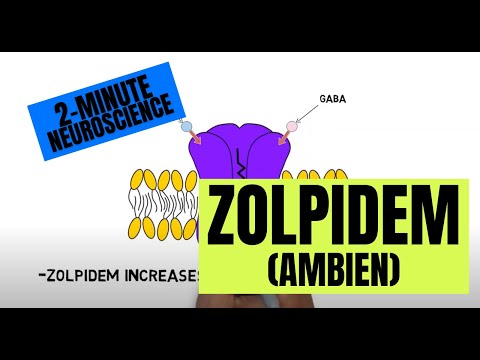- Subjects: Neurosciences
- |
- Contributor:
- Neuroscientifically Challenged
- neurotransmitter
- depression
- serotonin
- reuptake
This video is adapted from: https://youtu.be/uiXcAbrO8kU
SSRIs are the most widely-used treatment for depression, and have been since their introduction to the market in the late 1980s. They were formulated based on the hypothesis that depression is due to low levels of the neurotransmitter serotonin. In this video, I discuss how SSRIs work, along with some questions that have been raised about the serotonin hypothesis since the introduction of SSRIs.[1][2]
SSRIs were developed in the 1970s with the goal of treating depression by increasing serotonin levels. This goal was formulated based on the serotonin hypothesis of depression, which suggests that depression is caused by low levels of the neurotransmitter serotonin. SSRIs work by inhibiting a mechanism called reuptake. In reuptake, a protein called a transporter transports excess neurotransmitter molecules out of the synaptic cleft, usually back into the neuron that released them. SSRIs inhibit the reuptake of serotonin. By inhibiting the removal of serotonin from the synaptic cleft, this causes levels of serotonin in the synaptic cleft to rise. These increases in serotonin levels have been hypothesized to be the mechanism by which SSRIs can treat the symptoms of depression.
There are reasons now, however, to believe that there must be more to the mechanism of SSRIs than just changing serotonin levels. For example, when someone begins taking an SSRI, they generally have to wait about 4 weeks before their symptoms improve. Evidence suggests, however, that their serotonin levels rise as quickly as within an hour after taking the medication. Thus, it seems likely that SSRIs may affect serotonin levels, which then leads to other effects that influence the symptoms of depression.
Therefore it’s probable that more than serotonin levels must be changed for SSRIs to work, which suggests that depression isn’t caused only by low serotonin levels. Additionally, evidence has now emerged that questions the effectiveness of SSRIs. Some research has found they do not work much better than placebos, and may only benefit those who are most severely depressed, which is a minority of patients who actually take the drugs.
- Invernizzi R, Velasco C, Bramante M, Longo A, Samanin R. Effect of 5-HT1A receptor antagonists on citalopram-induced increase in extracellular serotonin in the frontal cortex, striatum and dorsal hippocampus. Neuropharmacology. 1997 Apr-May;36(4-5):467-73.
- Kirsch I, Deacon BJ, Huedo-Medina TB, Scoboria A, Moore TJ, Johnson BT. Initial severity and antidepressant benefits: a meta-analysis of data submitted to the Food and Drug Administration. PLoS Med. 2008 Feb;5(2):e45. doi: 10.1371/journal.pmed.0050045.


























































































































































